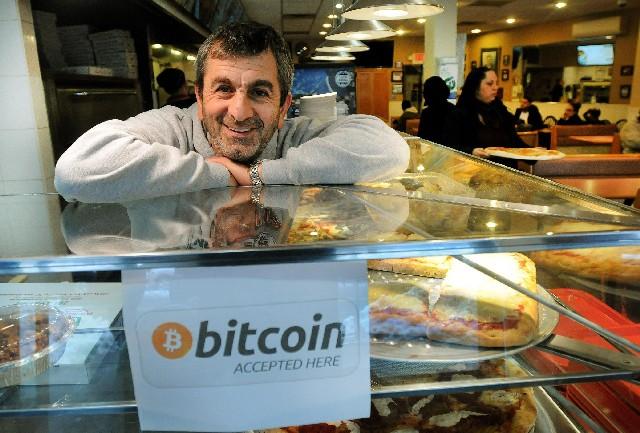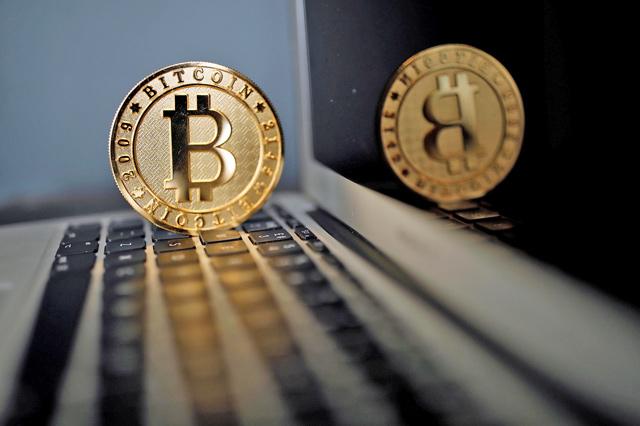You are here
US regulator warns consumers of bitcoin risks
By Agencies - Mar 11,2014 - Last updated at Mar 11,2014
WASHINGTON — A US financial regulator warned consumers Tuesday that using the online currency bitcoin is fraught with risks including theft by hacking and fraud.
The Financial Industry Regulatory Authority (FINRA) issued the general warning amid a spate of scandals involving the digital currency, which has rocketed in popularity and been the focus of much speculation over the past two years.
“Buying and using digital currency such as bitcoin carry risks. Speculative trading in bitcoins carries significant risk,” FINRA said.
“Platforms that buy and sell bitcoins can be hacked and some have failed. In addition, like the platforms themselves, digital wallets can be hacked. As a result, consumers can — and have — lost money,” it added.
The agency, which regulates the securities industry, said digital wallets, where users hold their bitcoin on computer files, are vulnerable to theft, and have none of the legal protections and guarantees that depositors in US banks and credit unions enjoy.
Bitcoin transactions — designed to transfer funds between two parties without a bank or other intermediary — are also subject to fraud and robbery, and are irreversible, FINRA added.
It also pointed to the use of bitcoin in money laundering and drug payments. The agency said that exchanges involved in such activity could be shut down, costing other users not involved in illegal activity.
FINRA noted the closure of Japan-based Mt Gox, once the largest bitcoin exchange which said it had been robbed of nearly half a billion dollars’ worth of the digital currency, most of it clients’ money.
Mt Gox filed for bankruptcy protection in Japan at the beginning of this month and in the United States on Monday.
Separately, the first bitcoin ATMs are cropping up in North America, enabling consumers to swap cash for units of the crypto-currency, or cash in their bitcoins. ATMs are coming in Europe and Asia as well.
The machines could allow bitcoins, generated by a complex computer algorithm designed in 2009, to move out of the realm of geeks to the broader public.
The US startup Robocoin, after unveiling its first ATM in Vancouver last year, announced plans last week for bitcoin ATMs in Austin, Texas and Seattle, Washington, ahead of a wider global launch.
Removing bitcoin barriers
“We have completely removed the barriers for people to buy and sell bitcoins,” Robocoin Chief Executive Jordan Kelley told AFP. “You no longer have to wait days, you don’t have to provide your bank account.”
Kelley said Robocoin provides the only “bi-directional” bitcoin ATMs, meaning that consumers can either buy or sell the digital currency.
Robocoin provides the hardware, made in the United States, to local operators, who must get certification from state and federal authorities, and comply with anti-money laundering rules.
Operators around the world will also need certification in the countries where they operate, Kelley noted.
“We were built to be fully compliant [with finance regulations] globally,” he said.
Kelley declined to provide the number of orders for the ATMs, saying only, “We have a lot.”
He noted that the company is awaiting certification for its shipments to locations in Europe and Asia.
The Robocoin ATMs perform a biometric scan of each user’s palm, as well as take a facial photo, which is matched to the user’s government-issued identity card. The system also runs a check to determine if the user is a wanted criminal or terror suspect.
“We provide a profile of the customer that gives our operators full visibility and trackability,” Kelley said.
The first operational ATM in the United States started up last week in a New Mexico cigar shop, according to manufacturer Lamassu bitcoin Ventures.
Lamassu has some 200 orders around the world and has opened bitcoin ATMs in two Australian cities as well as one each in Helsinki, Berlin, Bratislava and Vancouver.
The New Mexico operator Enchanted bitcoins is “paving the way for mainstream bitcoin accessibility in the Unites States”, says Zach Harvey, chief executive officer of Lamassu, a company registered in the British Virgin Islands.
The operator is following guidelines from FinCEN, the Financial Crimes Enforcement Network, to avoid running afoul of the law and has registered as a money exchange service.
Despite the growing popularity of bitcoins, the digital currency has been linked to crime and drugs in exchanges like the dark Web bazaar Silk Road. And many economists warn that the currency has no hard value.
Bitcoins have been exceptionally volatile, rising to more than $1,200 last year, before falling to around $600 in recent weeks. And some bitcoin exchanges have been shut down by regulators.
Last month, US authorities filed criminal charges against two operators of a bitcoin exchange, including the head of a company with high-profile investment backers.
Some analysts see advantages in the move to bitcoin — it has little or no transaction costs, is quickly and easily transmitted, and has verifiable and traceable transactions based on its software.
“The deeper I dive, the more impressed I am with this as a technology solution, as an incredible idea for finance, as a stored value for payments,” said Staci Warden, executive director of the Centre for Financial Markets at the Milken Institute.
Warden added that bitcoin has advantages over other currencies because it can be divided into extremely small units — one quadrillionth of a bitcoin — for micropayments.
“bitcoins can be sent to you with no transaction costs at all,” Warden told an online forum. She said that contrary to popular belief, bitcoin transactions are not anonymous but “pseudonymous” and can be traced and verified on the bitcoin master ledger.
“If Target used bitcoin, none of the 70 million customers would have had their accounts compromised, because Target wouldn’t know anything about the customers,” she said.
But a report last month by the International Institute of Finance, which represents more than 450 banks and financial institutions, said bitcoin’s future as a broadly accepted exchange medium is limited.
Mark Williams, a Boston University banking and risk management specialist, argues that bitcoins are dangerous for the financial system and that ATMs heighten the risks.
“An ATM makes it easier for the average person to get access to bitcoins,” Williams said. “But there is no consumer protection. There is no guarantee you will get your money back.”
Williams argues that bitcoin is not really a currency but a commodity, “and it’s a high-risk commodity, a speculative commodity”.
He said bitcoin values have fluctuated more than 50 per cent in a single day, like other speculative assets.
“So I don’t think they should even use the term ATM machine,” he added. “It’s really a betting machine.”
Warren Buffett, founder of Berkshire Hathaway and routinely touted as the most successful investor of the 20th century, said last week that he didn’t expect bitcoin to stay around in the longer term.
Buffett posited that in wartime it is much better to hold stocks rather than money or bitcoin, referencing his first investment in 1942, when World War II wasn’t going well for the US. He was right to do so because the stock market appreciated during the war and the dollar weakened.
Buffett offered this piece of wisdom: “American businesses are going to be worth more money. Dollars will be worth less, so that money won’t buy you quite as much, but you’ll be much better off owning productive assets over the next 50 years than you will be holding pieces of paper or, I’m not sure, bitcoins.”
As regards bitcoin, Buffett expressed the view that the self-styled crypto-currency “is not a currency”, in that “it is not a durable means of exchange”. The “Oracle of Omaha” said that he “wouldn’t be surprised if it [bitcoin] wasn’t around in the next 10-20 years”.
Eric Spano, director of finance at the bitcoin Embassy in Montreal and a director of the bitcoin Alliance of Canada, asserted last week that the rally is due to the fact that investors are starting to understand that the crypto-currency is separate from the exchanges which trade it.
“Any issues these companies may be having are not necessarily rated to the bitcoin protocol or the network itself,” Spano claimed.
“In bitcoin, nobody is too big to fail,” Spano said. “But overall by weeding out the bad actors, bitcoin will become stronger.”
He believes that, whilst the Mt Gox collapse may have been catastrophic for some investors, bitcoin is still extremely young and that such failures are part of a maturing market. “The people who can’t keep up with the industry or are not prepared… will eventually get kicked out.”
The bitcoin expert observed that, with the dust starting to settle, exchanges are experiencing a trend toward accountability and transparency as the industry shift its focus to prove to customers that the digital currency is secure. He noted that bitcoin exchanges and websites for e-wallets are now implementing different types of audits.
“This [MtGox’s closure] has brought the community together in a way most crises don’t really bring anyone together.”
Related Articles
The apparent collapse of Tokyo-based bitcoin exchange Mt. Gox isn’t bothering Anthony Hope and others who have ditched steady careers in government and finance to build bitcoin companies — and who stand to lose money they have in Mt. Gox.
The Central Bank of Jordan (CBJ) on Saturday warned the public against the use of virtual currencies, particularly bitcoin, saying they are not legal tender.
LONDON — October 31, 2008 marked the birth of Bitcoin.













